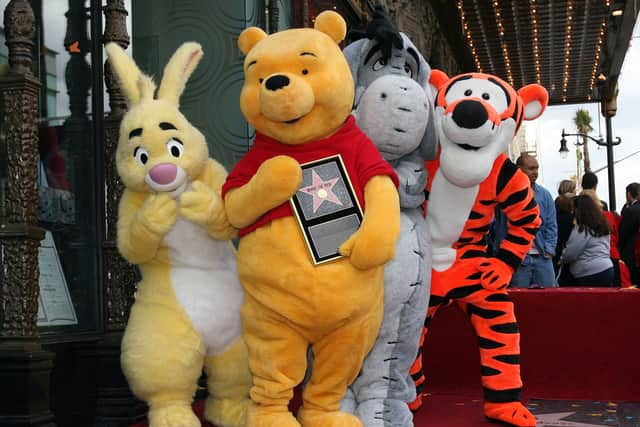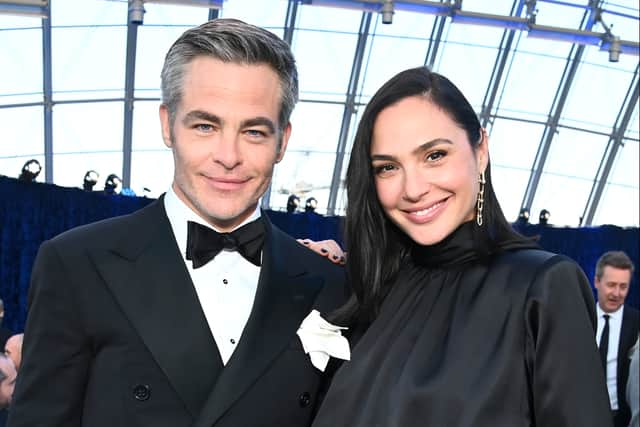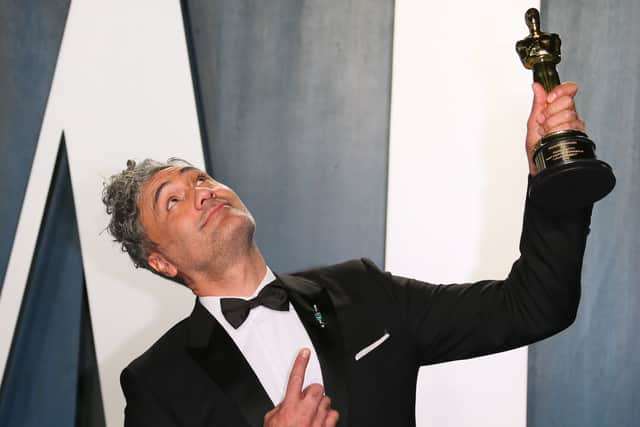Lightyear, Winnie The Pooh and Barbie; the films banned overseas for not so obvious reasons
People in this article
This article contains affiliate links. We may earn a small commission on items purchased through this article, but that does not affect our editorial judgement.
and live on Freeview channel 276
Bad news for Vietnam fans of Barbie, as currently the country’s censorship board have banned the film from being screened. Was it the amount of bloodshed that was involved, or perhaps akin to some countries in the middle east depicted portrayals of same sex relationships? Well, no… it all boils down to a scene involving a map.
But history is a contentious monster in Asia, and said map used in Greta Gerwig’s “Barbie” movie, due for release on July 21st 2023, has been the cause of the ban. That map happens to have a nine-dash line that is used by the People's Republic of China to lay claim to parts of the South China Sea, which has been at the centre of long standing territorial disputes between areas such as Vietnam and the Philippines.
Advertisement
Hide AdAdvertisement
Hide AdSo it should also come as no surprise that the Philippines are also now deliberating whether they want to show the film, or follow the same example that Vietnam had. At present, there has been no clear indication on the decision - but don’t hold your breath, Filipino Barbie fans.
The hopefully resolution is that the offending scene in question is exercised from edits submitted to both Vietnam and the Philippines, but then that leads to another issue; the lucrative Chinese cinema going market. A number of high profile films, including those from Disney’s Marvel Cinematic Universe, have had scenes removed in order to present something that the Chinese Communist Party deem “fit” for public viewing.
Should Warner Bros change the scenes in those two areas, could that be viewed by China as an acknowledgement that the “nine-dash line” is non existent, and therefore jeopardise future release in the country and that big cinema going audience that the industry, if Indiana Jones 5 is any indication, sorely needs to return to cinema multiplexes?
What are some other films that have been banned for “unusual” reasons?
We’ve decided to omit most films that are either against the religious beliefs of various countries across the world, alongside those that have been banned due to violence or distressing scenes. Still, we have five unusual entries to offer up to you.
Advertisement
Hide AdAdvertisement
Hide AdLightyear (Egypt - 2022)


We said we’d avoid same-sex relationship issues being a reason for a ban, but given the very lightweight nature of Pixar’s Toy Story prequel, “Lightyear,” and the fact that it was an animated children’s film, we thought we’d ease into some unusual bannings.
Egypt banned “Lightyear” primarily because of a same-sex kiss between two female characters in the film, and not for the overly jingoistic nature of the film that some territories have an issue with.
Winnie The Pooh: Blood and Honey (Hong Kong - 2023)


A bloody retelling of A.A Milne’s beloved children’s character, and his friend Piglet, might have been banned due to moments of extreme violence or sadistic nature towards its female characters. But not in Hong Kong and a number of other areas that China has laid claim to.
Instead, the ban comes from the fact that the character of Winnie The Pooh has been banned from Mainland China, due to comparisons made in the past between the beloved, honey-addicted bear and China’s current leader, Xi Jinping.
Advertisement
Hide AdAdvertisement
Hide AdDeath On The Nile (Kuwait - 2022)


Gal Gadot catches a lot of flack, and perhaps her all-star cover of “Imagine” that was created during the COVID-19 pandemic should have been banned in the interests of good taste. But in Kuwait, her starring role in “Death On The Nile” never took place - due to her previous ties to the Israeli Defence Force and the ongoing tensions between Israel and Palestine.
In actuality, a number of films that Gal Gadot featured in, including the popular “Wonder Woman” franchise and her roles in DCEU films, have either been banned in Middle Eastern territories or her roles have been exorcised full stop.
Jojo Rabbit (Russia - 2019)


One of the issues that some had with Taika Waititi's Oscar-winning film, “Jojo Rabbit,” stemmed from it making fun of the Nazi regime and Adolf Hitler during WWII. They felt that such subject matter trivialised both the Holocaust and in some extreme cases “normalised” the behaviour of Adolf Hitler by making him a form of comedic relief.
But Russia decided to go one step further and officially “cancelled” the film, based upon the fact that it portrays Adolf Hitler and the Nazi Party in a comedic light. The ban has yet to be lifted - probably because Russia has more pressing matters to deal with.
Advertisement
Hide AdAdvertisement
Hide Ad8 First Dates (Ukraine - 2020)
Speaking of Russia - did you know that a romantic comedy made in 2012 was eventually banned by the Ukrainian government? That fate befell “8 First Dates,” but not for the content in the screen, but more the events that took place after its release.
The film was banned by Ukraine's Cinema Agency because an actress that appeared in a prequel, Yekaterina Varvara, was blacklisted for five years for visiting Crimea during Russian occupation to attend a comedy show in 2016. Which, to this film buff, still stands as one of the most obscure reasons to ban a film.
Comment Guidelines
National World encourages reader discussion on our stories. User feedback, insights and back-and-forth exchanges add a rich layer of context to reporting. Please review our Community Guidelines before commenting.
